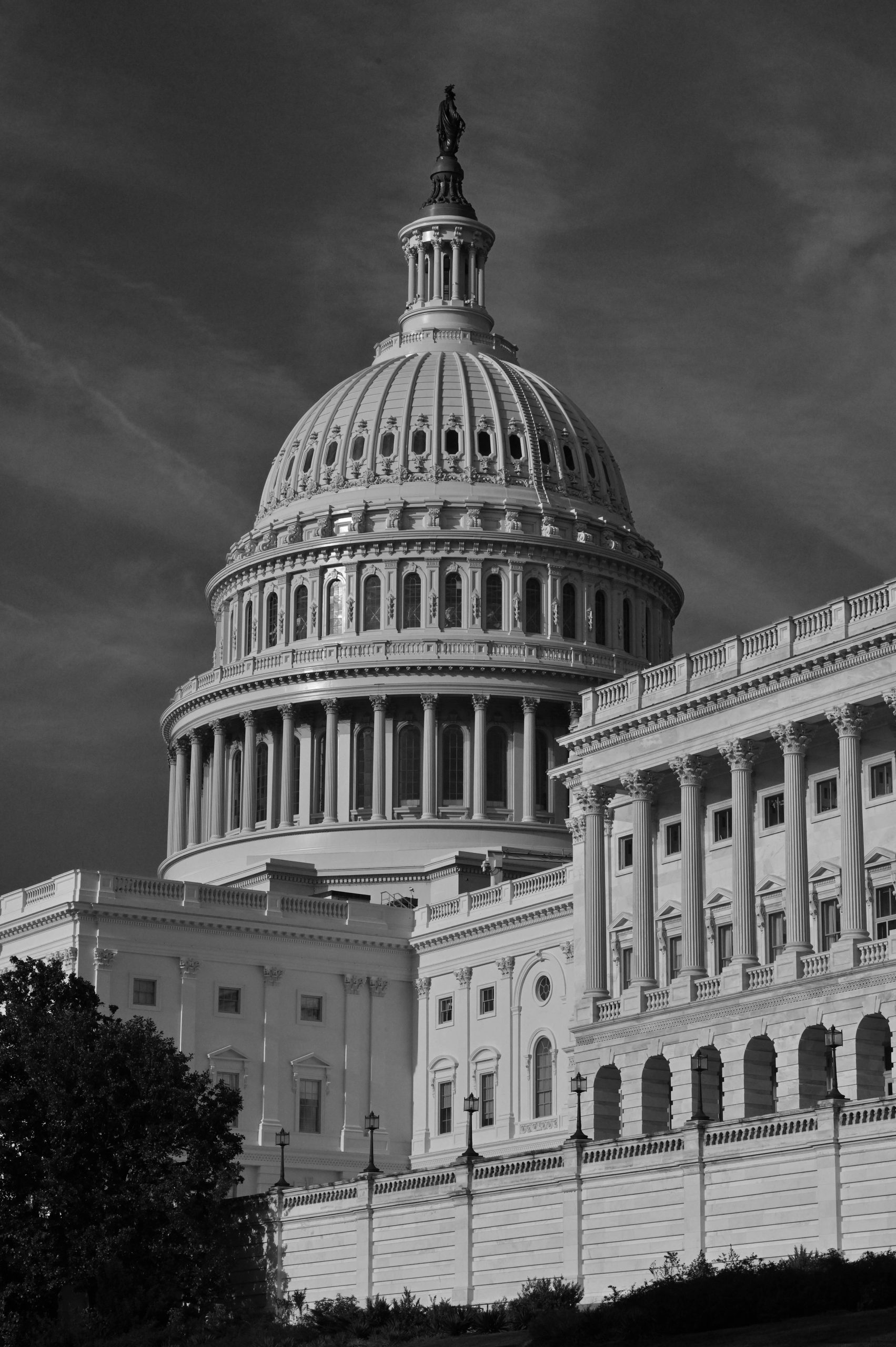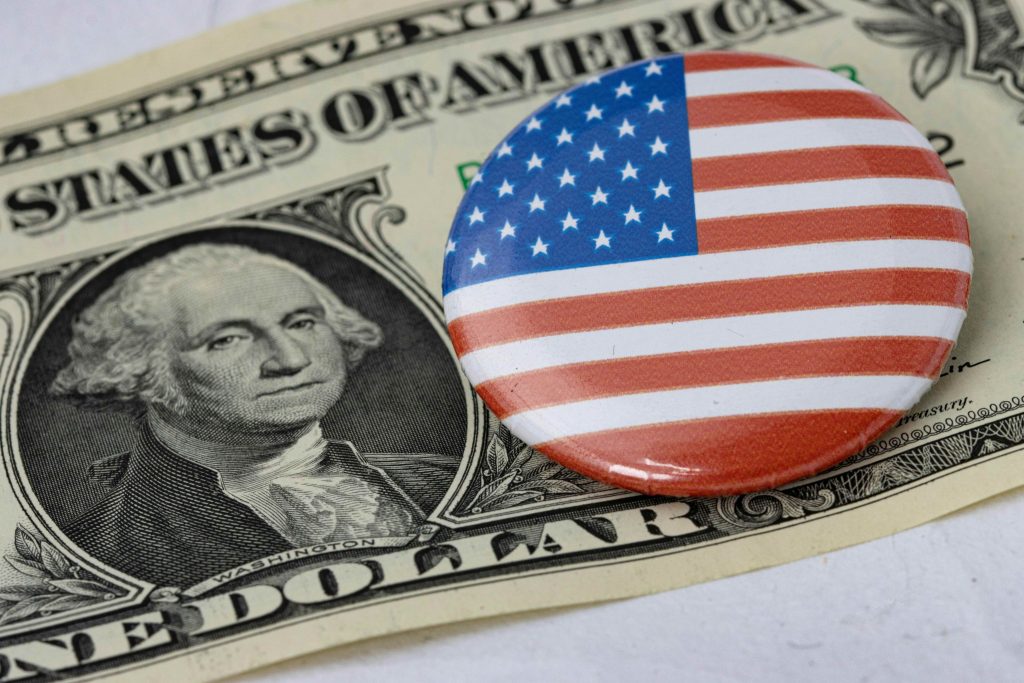Who Regulates America? How State Laws are Shaping National Markets

By Tanner Pomeroy*
In the halls of Congress, gridlock has proven more enduring than any party majority or presidential administration. Partisan disagreements over spending levels, health insurance subsidies, and other critical issues have stalled even bipartisan legislation. For instance, Senate Democrats just this week have blocked measures to pay troops and federal workers amid the ongoing government shutdown.1 At the same time, Republicans, despite controlling both chambers of Congress and the White House, have struggled to translate campaign promises into legislative results.2
Yet in many ways, the Framers anticipated this tension.3 The checks and balances within the legislative process were designed to slow federal action by ensuring open debate and allowing competing factions to challenge and refine proposed bills.4 While the process can be frustrating, it embodies the deliberate pace of a government founded on debate, dissent, and compromise.
While Washington debates federal issues, state legislatures have focused on serving their constituents. Our country, once defined by distinct state economies and local trade, now operates as a single national marketplace, with supply chains and industries crossing state lines at every level.5 As a result, both small local businesses in other states and large national corporations are affected by state-level debates dominated by local political interests. In these forums, out-of-state perspectives carry little weight, yet these entities remain bound by laws enacted far beyond their borders.
For example, California’s animal welfare law, known as Proposition 12, was passed to address concerns over how pigs are housed and raised.6 However, California produces very little pork itself.7 Instead, its regulations dictate how farmers in states like Iowa, Minnesota, and North Carolina must raise their livestock if they wish to sell products in California’s massive market. What began as a local moral initiative has effectively reshaped an entire national industry.
The issue is not whether goals like animal welfare, climate standards, or labor fairness are worthwhile, but rather who gets to decide them. This approach undermines the principles of federalism and representative democracy by allowing voters in one state to impose their moral and policy preferences nationwide. Certain states act as gatekeepers for the entire country, not through Congress, where all states have representation, but through sheer market leverage.
In National Pork Producers Council v. Ross, Justice Gorsuch rejected the idea that courts should weigh economic burdens against moral or policy benefits under the Pike balancing test.8 He argued that such balancing would force judges to make legislative judgments, turning the Court into a “super-legislature.”9 However, as Justice Kavanaugh noted in his concurrence, avoiding policymaking is not the same as ignoring constitutional limits on state power.10 He emphasized that it is the judiciary’s role to enforce limits on state authority embedded in the Commerce Clause.11
The resulting impact of states exerting greater control over national corporations and small businesses operating across state lines has made it increasingly difficult for companies to adapt. For example, Arkansas recently enacted a law requiring any Pharmacy Benefit Manager (PBM) operating within the state to divest from any pharmacies it owns.12 In effect, this legislation would compel companies like CVS Health to restructure their corporate organization, as it operates both as a PBM and as the owner of retail pharmacies in Arkansas.13
State laws have long regulated PBMs and pharmacies within their borders. For instance, Arkansas law already requires PBMs to reimburse non-affiliated pharmacies at the same or higher rate than PBM-affiliated pharmacies.14 This is a traditional exercise of state authority regulating fair competition within state lines. Such economic regulations fall well within a state’s police powers.
The distinction, however, lies in the reach of the new divestiture mandate. Rather than merely setting terms of fair dealing within Arkansas, the law seeks to reshape or even prohibit out-of-state companies from participating in its market. In effect, it regulates companies on a national scale, far beyond the state’s borders.
Similarly, California’s Proposition 12 regulates how goods are produced outside the state before ever entering its market. It does not govern the quality or safety of the pork itself, but rather the production operations in other states. Thus, while its effects are felt within California, the regulated conduct occurs entirely beyond the state’s borders.
If the judicial branch determines that intervening would position it as a “super-legislature” and deems it improper for justices to balance the interests at play, out-of-state corporations and parties will continue to suffer. Each state could vie to protect its largest companies, while the judiciary remains deferential in its review.
The national economy is already feeling the strain of this expanding patchwork of state regulations. State laws in areas like financial and consumer protection are imposing heavy burdens on businesses operating across state lines, leading to higher consumer costs and less robust markets. Differing state privacy laws, for example, have created confusion for companies subject to multiple, overlapping rules that decrease productivity and increase compliance costs. According to a 2022 report by the Information Technology and Innovation Foundation, the absence of federal privacy legislation could impose costs of $112 billion annually on businesses nationwide, with small businesses bearing $23 billion of that burden.15 As of October 2025, at least twenty states have passed varying data privacy laws, each bill requiring businesses to adjust how they collect, store, and protect consumer information.16The effects of these state laws reveal a deeper constitutional and economic challenge. In the absence of federal action, states are not merely experimenting within their borders; they are setting national policies that reshape industries. What began as their role in regulating local trade has evolved into a regulatory competition that undermines the national marketplace. If the judiciary continues to defer to states, the balance between the state and federal government will erode further, leaving businesses to navigate an expanding maze of conflicting regulations.
* J.D. Candidate, Class of 2027, Sandra Day O’Connor College of Law at Arizona State University
- Alexander Bolton, Senate Blocks Bill to Pay Military, Essential Workers During Shutdown, The Hill (Oct. 4, 2025, at 1:18 PM ET), https://thehill.com/homenews/senate/5569779-bill-pay-military-essential-workers-shutdown/. ↩︎
- Sarah Ferris, Ted Barnett & Manu Raju, GOP Infighting Over Trump’s DOGE to take center Stage as Deadline Looms, CNN (July 14, 2025, at 12:00 AM EDT), https://www.cnn.com/2025/07/14/politics/trump-doge-cuts-rescissions-congress-deadline. ↩︎
- See The Federalist No. 51 (James Madison) (“In framing a government which is to be administered by men over men, the great difficulty lies in this: you must first enable the government to control the governed; and in the next place oblige it to control itself.”). ↩︎
- Id. (“The great security against a gradual concentration of the several powers in the same department, consists in giving to those who administer each department the necessary constitutional means and personal motives to resist encroachments of the others.”). ↩︎
- Donald J. Boudreaux, The Economy Is Not a Series of Supply Chains, Indep. Inst. (Apr. 13, 2020), https://www.independent.org/article/2020/04/13/the-economy-is-not-a-series-of-supply-chains/. ↩︎
- Nat’l Pork Producers Council v. Ross, 598 U.S. 356, 366 (2023). ↩︎
- Id. ↩︎
- Id. at 382. ↩︎
- Id. ↩︎
- Id. at 405. ↩︎
- See Id. at 405 (Kavanaugh, J., concurring) (“To be sure, courts do not have freewheeling authority to second-guess the wisdom of state laws. But courts do have a responsibility to invalidate state laws that unduly burden interstate commerce in violation of the dormant Commerce Clause.”). ↩︎
- See Ark. Acts 624, 94th Gen. Assemb., Reg. Sess. (Ark. 2025) (codified at Ark. Code Ann. § 23-92-604 (2025)) (prohibiting a pharmacy benefits manager from holding, directly or indirectly, an ownership interest in a pharmacy operating within the state). ↩︎
- Id. ↩︎
- Ark. Acts 1, 91st Gen. Assemb., 2d Extraordinary Sess. (Ark. 2018), https://www.arkleg.state.ar.us/Home/FTPDocument?path=%2FACTS%2F2018S2%2FPublic%2FACT1.pdf. ↩︎
- Daniel Castro, Luke Dascoli & Gillian Diebold, The Looming Cost of a Patchwork of State Privacy Laws, Info. Tech. & Innovation Found. (Jan. 24, 2022), https://itif.org/publications/2022/01/24/looming-cost-patchwork-state-privacy-laws/. ↩︎
- David Botero, U.S. State Privacy Legislation Tracker (Oct. 10, 2025), Int’l Ass’n of Privacy Pros., https://iapp.org/resources/article/us-state-privacy-legislation-tracker/. ↩︎


